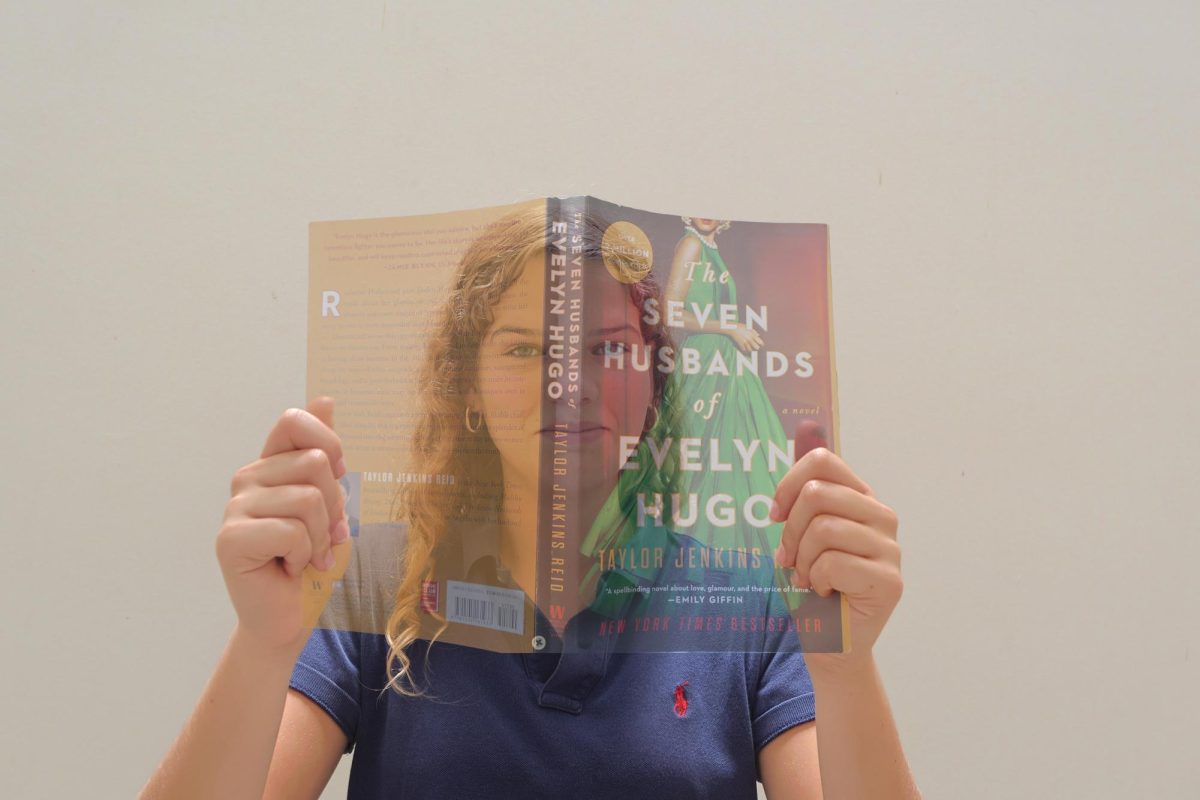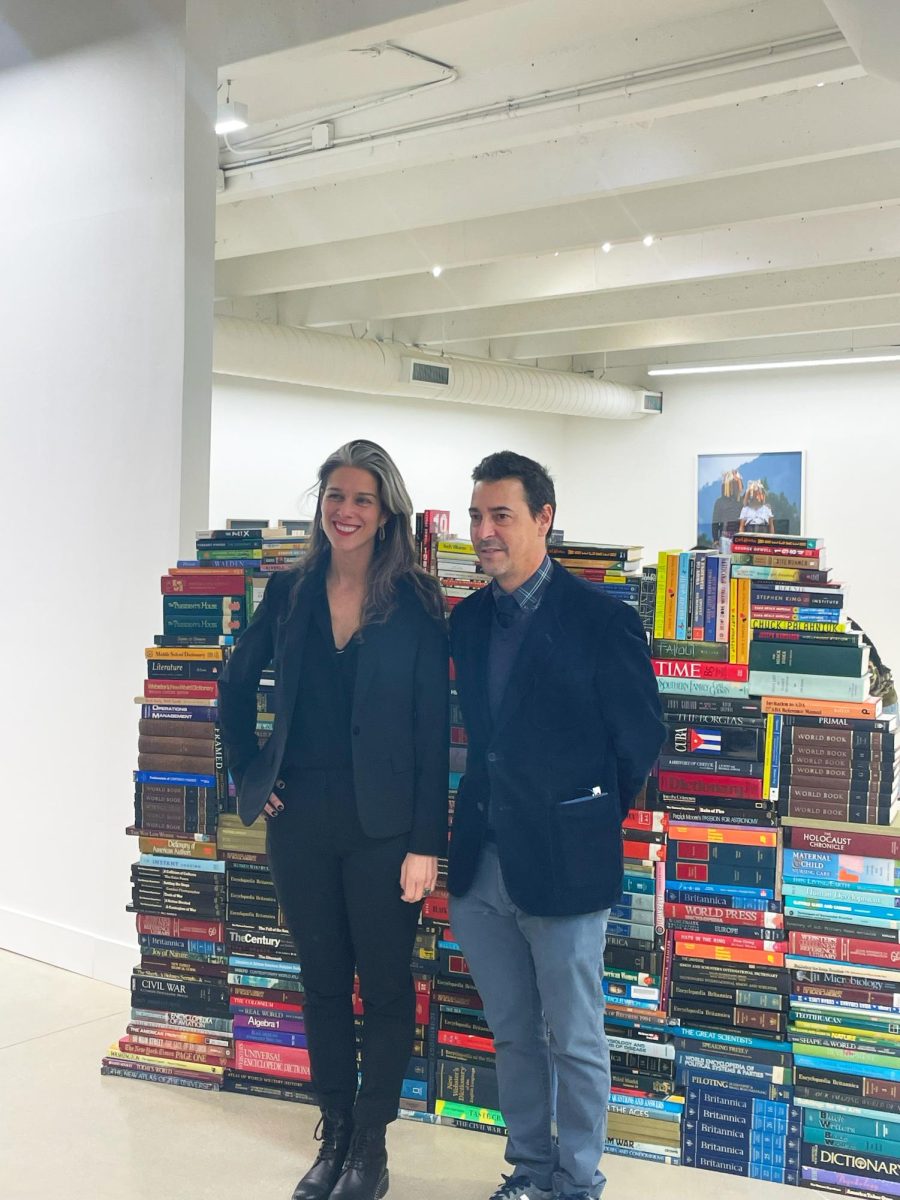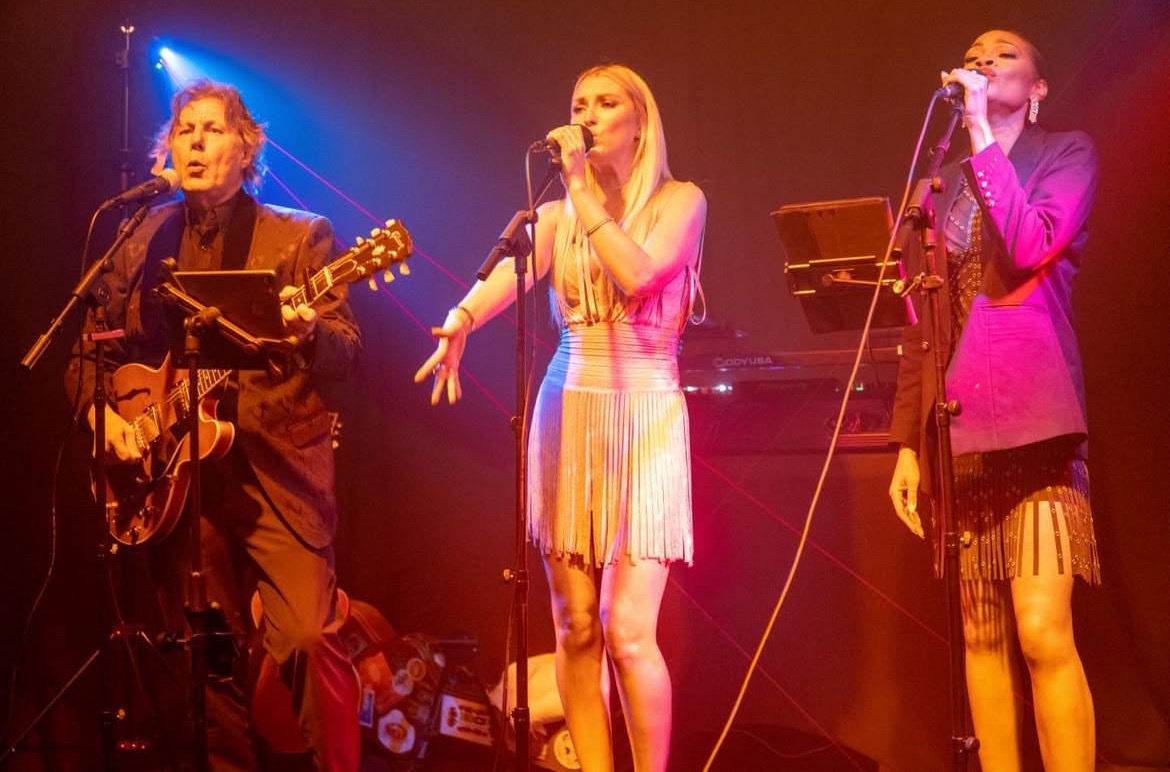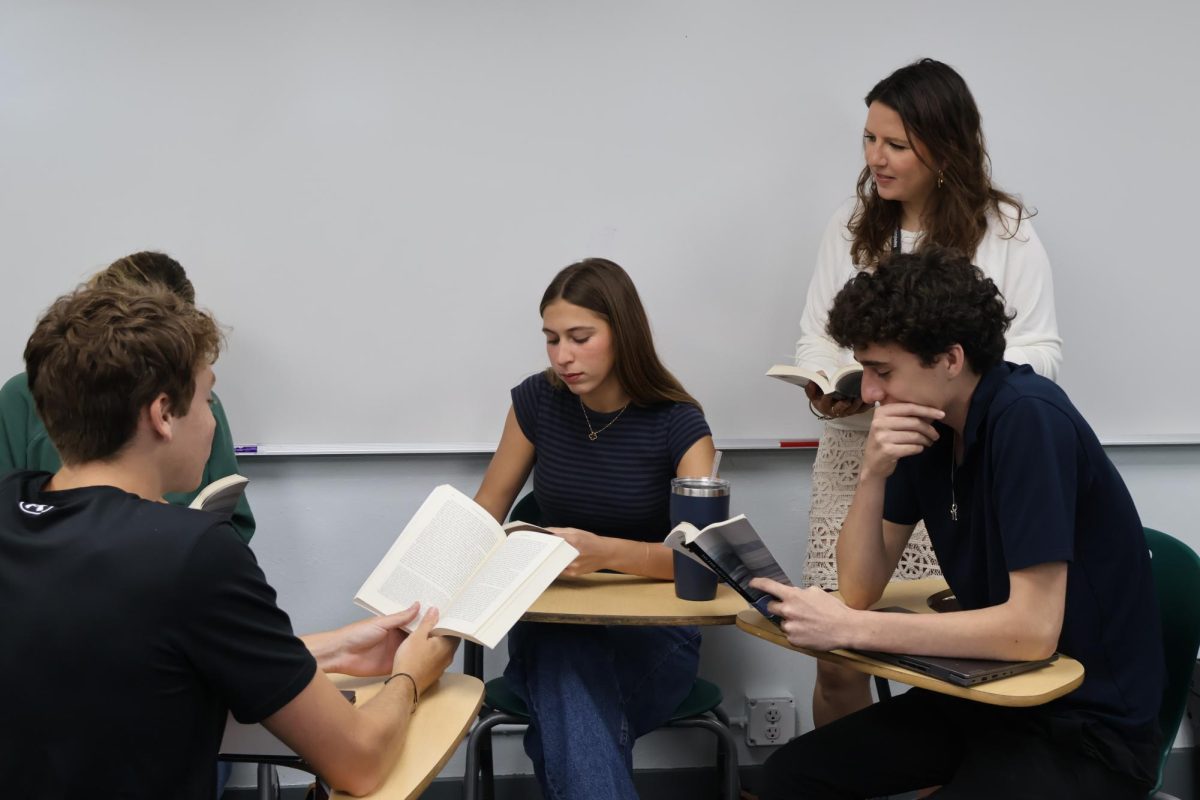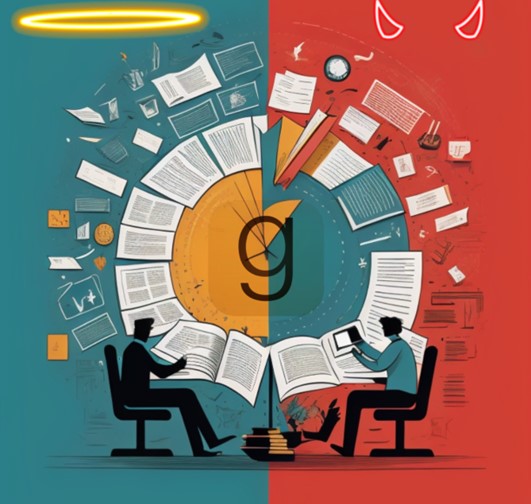
Imagine this scene: Scrolling through an online library with thousands of books, you find one that immediately draws your attention. The tropes, the genre, the plot, even the cover—it’s everything you look for in a good book. And yet, as you scroll down for more information, you’re met with thousands of one-star reviews with lengthy explanations attached to them. Disgruntled, you click off in search of another book.
The catch? The book you saw wasn’t going to be published for another six months, so none of the reviewers were even able to read it. Yet still, before the book was even circulating throughout the world, a shameful 1.1 stars hangs above its head.
Another victim, murdered by review-bombing.
Goodreads, a social online literary platform for reviewing books, enables connections among thousands of book lovers across the globe, including readers within the RE community. The website’s interactive features, such as reviews, reading challenges, listopias, book groups and author-reader questions, have facilitated a reading culture both at RE and more broadly, providing a place for readers’ pent-up book rants or an online library where they can organize their past, present and dream books.
The increasingly common practice of review bombing, however, has raised questions about whether the negative ramifications of Goodreads upon both authors and readers alike outweigh its positive impact. Is Goodreads necessary? Is Goodreads harming authors? Is Goodreads even good?
For many readers in the RE community, the app’s features have been essential. Sophomore Olivia Augustin ’26 found that Goodreads’ vast digital library has fundamentally changed the way she has interacted with literature. “I’ve found myself engaging with past, older books more often since joining it, honestly. It’s helped me form a new mindset towards older books that I probably wouldn’t have thought to look for if they hadn’t showed up on my feed with raving reviews and such,” she said.
Meanwhile, thanks to Goodreads’ ability to create social profiles, Latrice Nelson ’25 can add her friends on Goodreads, giving her the ability to check in on her friend’s book statuses, yearly goals and virtual bookshelves. “I love the social aspect of Goodreads the most,” Nelson said. “I like how you can see what your friends are reading and kind of talk about books together. It’s a real bonding moment between all of us.”
Luiza Bell ’25 is an avid participant in Goodreads’s annual reading challenges, and as a result, she feels like her reading habits have improved with the addition of a yearly reading goal. The goal allows her to stay focused throughout the year, and her love of writing Goodreads reviews further motivates her to complete such challenges. “Before I had the app, I did not read as much, but now I care a lot about what I’m reading, it’s kind of like a competition where I want to read as many books as possible,” said Bell.
Both Nelson and Bell agree that the social aspect of Goodreads fosters a sense of community and belonging. As Nelson put it, “Literature is more enjoyable when you know other people also enjoy literature. In day-to-day life, you don’t find many readers, so it’s nice to have a little space where everyone can collect and talk about their books. People usually don’t talk about that stuff in real life.”
This ability to unload one’s literary thoughts all in one location has enabled RE readers to not only express their thoughts amongst one another, but also to share them with a greater, international literary community via reviews.
Sophia Romanov-Imber ’24 enjoys leaving reviews because she is appreciative of when others leave reviews for her as well. “If I read a review that mentions, ‘I didn’t like this part of the book,” I’m like, ‘Oh, I don’t like the trope either.’ By reading the reviews, it helps me to not invest my time in a certain aspect of the plot I know I’m not gonna like,” said Romanov. “Goodreads is like the heads up keeping me from wasting my money or my time, helping me weed out the books I know I won’t enjoy.”
“People are often very eloquent when they write reviews on books compared to other products,” added Audrey Caplow ’25. “Plus, if someone writes a great review or mentions another series, it allows you to expand your horizons and give it a try.”
These positive, nonharmful experiences demonstrate the value of reviews on Goodreads. But they can often be overshadowed by the phenomenon of review bombing.
On Goodreads, review bombing occurs when many people post negative user reviews online to harm the sales or popularity of a certain book. It often occurs due to an author’s involvement in a particular scandal or the author possessing clashing viewpoints with a large group of readers. In some cases, internet trolls utilize review bombing on websites such as Goodreads by sending ransom emails and attempting to extort authors, demanding money or threatening that their book’s reviews will plummet.
In an interview with Time, Beth Black, indie author of “Where You Go, I Go,” highlighted her own experience with trolls who had threatened her Goodreads ratings. She had received an anonymous email demanding a ransom, or else the extortionists would bomb her books with 1-star hateful reviews before it came out. “What startled me was that while I made a lot of noise about this, I wasn’t the first victim,” Black said. “[The scammers] have been doing this for a while. People were commenting that it’s a regular thing.”
Regardless of the reasoning, review bombing on Goodreads impacts both the average ratings and how the book itself is received by potential readers.
“It just shows that reviews can negatively impact someone who simply wants to read a book. If there’s a bunch of bad reviews, you’ll probably not want to read the book right away. A couple of bad, dishonest reviews can cause you to miss out on your next favorite read, you know?” said Egyptia Green ’25.
As Caplow and Romanov pointed out, review bombing is especially problematic because readers are inclined to follow popular trends rather than explore diverse genres enough as it is. An influx of negative reviews on an upcoming novel may be enough to dissuade most from giving the novel a chance—compounding the way that Goodreads and other similar platforms have caused the book publishing industry to be reduced to fast fashion.
“People are less risk averse now because they know what they want to read and they don’t want to venture out to different genres,” mused Romanov.
Caplow agreed. “When it’s all the same type of book with the same plot and even the same cover at this point… It becomes a little redundant. A lot of the times I see it socially shift the narrative from viewing people who read as intellectual to generalizing them under the current popular genre, like calling everyone a ‘romcom/romance reader.’”
How do authors manage such criticisms that run rampant on websites such as Goodreads? At the Miami Book Fair, I had the privilege of asking this question to authors Amélie Wen Zhao, Alex Aster, and Lauren Roberts. Wen Zhao, author of “The Blood Heir Trilogy” and the “Song of the Last Kingdom” series, told me the answer was simple: avoid it. “I don’t look at Goodreads. I’ve had that site blocked since my first book deal,” she laughed. “I don’t engage in the negative feedback. [Websites like Goodreads] are a reader’s space, and remember, writing is art. It’s going to be subjective.”
In an emailed response to my interview questions, the author of the “Guardians of the Maiden” series, Beck Michaels, echoed Zhao’s sentiments. “I will say this for any authors or aspiring writers: reviews are not for you. They are for readers. There is no such thing as a perfect book. Once I accepted that, I no longer hold any expectations for Goodreads. I don’t write for good reviews.”
Review websites such as Goodreads make harsh reviews inevitable. Despite this, both Michaels and the author of “Lightlark,” Alex Aster, have found a balance between striving for successful ratings while pursuing their artistic expression. “A lot of the times you start off with a goal and an exact genre in mind,” Aster began. “I write for me first; you never know what will happen with a book. Whether people will get it, what’s going to happen with the audience. So, I just write for myself first because you just never know how people are going to receive it.”
“The best thing to do is laugh it off and keep going. Because for every bad review you get, there are hundreds more amazing ones by readers who absolutely love your books,” concluded Michaels.
Readers like those in the RE community, many of whom whose love for reading was fostered by Goodreads, are determined to support the authors that they love.
Caplow ‘25 emphasized that “reading is feeling at its finest. I think it represents in many ways humanity and the aspects of it that are most poignant. It can transport you to a new world and takes you to places you’ve never even thought of. It’s an entertaining distraction that teaches you a lot of lessons.”
This is why Lauren Roberts, author of the “Powerless” trilogy, leaves both readers and authors alike with the same advice. “Not every book is for every reader, but there is a book for every reader. There’s people out there who my book was not for them – and that’s totally okay! But there are a lot of people out there where my book, our books, and your books, are for them. It just takes time.”


